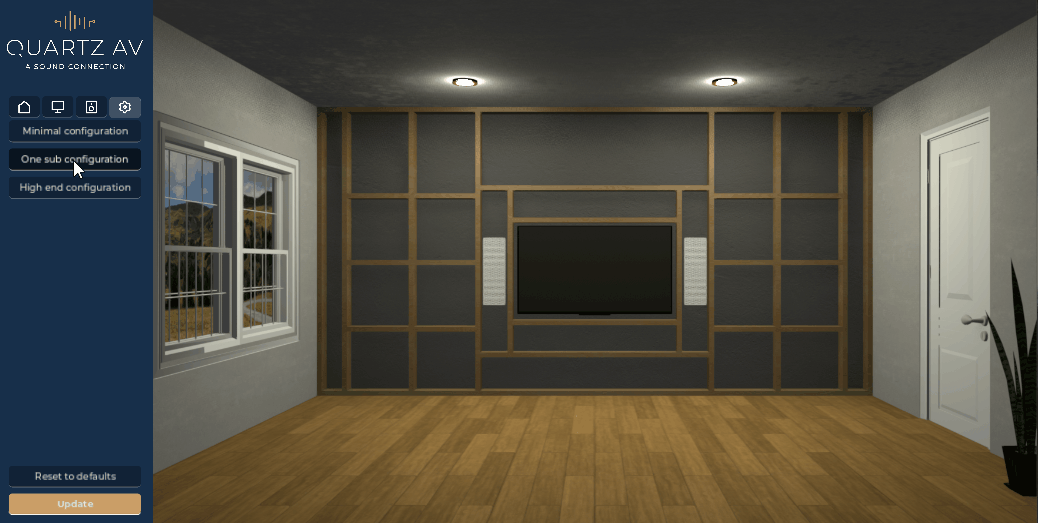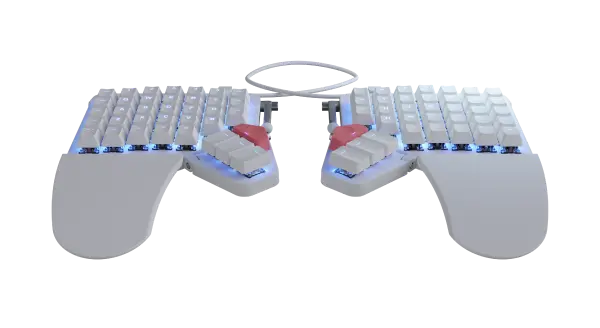The people who use our boards.
393 interviews since 2018
Joost
van der Putten
Founder of Theta Vision
Who are you, and what do you do? What do you like to do outside of work?
As the founder of Theta Vision, an AI startup that's pushing the boundaries of computer vision, mathematical modeling, and data analysis, I'm driven by a profound fascination with the transformative power of technology. My journey into the world of AI began with my doctoral research in endoscopic imaging, where I witnessed firsthand the extraordinary potential of AI to revolutionize healthcare and other fields. However, I also recognized the significant hurdles faced in translating these groundbreaking advancements into practical applications. This realization sparked my determination to bridge the gap between cutting-edge AI research and its real-world impact.
In just two short years, Theta Vision has started working on several very exciting projects, attracting a small team of exceptionally talented individuals who share my unwavering commitment to making AI accessible and impactful. Our mission is to leverage the power of AI to solve real-world problems and enhance human capabilities across diverse domains.
Besides the fancy title of founder, my own responsibilities within Theta Vision encompass a broad spectrum of tasks, including software architecture design, project management, and experiment design. I'm deeply invested in ensuring that our AI solutions are not only innovative, but also seamlessly integrated into existing workflows.
Beyond Theta Vision, I'm also collaborating with Quartz AV, a new company that provides high-end audio-visual custom integration solutions, to develop a custom sound wall configurator. This exciting project allows me to combine my software development expertise with my passion for music and sound to create immersive audio experiences for discerning clients.

Away from the demanding world of AI and technology, I find immense fulfillment in my role as a husband and as father to three vibrant children. I have a daughter who just started school and twin boys who are just learning to talk, so there is never a dull moment! When fleeting moments of free time emerge, I like to blow off steam through music. Music has always been a big part of my life, and I find immense joy in expressing myself through my two-piece band, Elephant Atlas.
In essence, I embody the spirit of a passionate technologist, a dedicated family man, and a creative soul who thrives on staying engaged and exploring new horizons. My journey is far from over, and I eagerly anticipate the opportunities that lie ahead, where technology and human ingenuity converge to create a brighter future.

What hardware do you use?
As an avid technology user and someone who spends countless hours at the computer, I've spent some time crafting my hardware setup to prioritize comfort, productivity, and creativity.
My ErgoDox EZ keyboard has transformed my typing experience. Its split design and customizable layout have significantly reduced strain and discomfort, allowing me to work for extended periods without compromising my physical well-being. One other noteworthy fact about my keyboard setup is that I flipped the keycaps of four keys in the bottom row so I could more easily use them with my thumb—very handy! Since the ErgoDox has such an unconventional layout, it often elicits curious and intrigued reactions from onlookers. I enjoy this attention, as it provides an opportunity to introduce others to the world of ergonomic keyboards and share my passion for optimizing my workspace.
To maximize workspace and streamline my workflow, I've also embraced a multimonitor setup, utilizing three screens to organize my tasks effectively. The primary monitor serves as my central hub, while the two others provide ample space for reference materials, code editing, or music production. The vertical screen is especially nice for documentation and referencing code. This expansive setup allows me to seamlessly switch between different projects and maintain a clear overview of my work, boosting my productivity and efficiency.
Other than that, I don't have any special hardware. I have a simple Logitech mouse, which I try to use as little as possible (yay Vim) with some additional buttons.
And what software?
In the realm of software, I might throw you a curveball considering my background, but I still use Windows. It might not align with the stereotypical preferences, but it suits my workflow seamlessly, especially with the addition of WSL, the transition to Linux does not seem worth it.
When it comes to coding, my go-to tool is Visual Studio Code. Its customizability and the extensive array of plugins catering to practically any use case make it an indispensable ally. A standout among these plugins is the Vim plugin. Admittedly, it takes a bit to acclimate, but once you're in sync with Vim keybinds, it's hard to imagine working in a text editor without them.
For the development side of things, especially in crafting the sound wall configurator for Quartz AV, Godot takes center stage. It's not just a game engine; it's an open-source powerhouse capable of far more than gaming pursuits. The versatility it brings to the table has me contemplating its use in Theta Vision as well, particularly for designing user interfaces.
On the organizational front, I rely on Todoist to keep my tasks in check. It's a fantastic program that integrates Vim-like keybinds, aligning with my penchant for efficiency and streamlined workflows.

What’s your keyboard setup like? Do you use a custom layout or custom keycaps?
My keyboard layout reflects my preference for comfort, efficiency, and a focus on function over form. As an avid typist and programmer, I've opted for a Dvorak base layout, known for its ergonomics and improved typing speed. This layout places the most frequently used keys in a more natural position, reducing strain and fatigue. To maintain consistency and enhance my coding workflow, I've created a customized coding layer that provides easy access to frequently used symbols and shortcuts.
While I considered using custom keycaps, I ultimately decided to stick with plain black keycaps. This choice was driven by my belief that visual aesthetics should not compromise the primary purpose of a keyboard: efficient typing and programming. Additionally, I opted against backlighting, as I find it unnecessary and distracting. Instead, I rely on the natural light in my workspace, which provides ample illumination for my typing tasks.
In summary, my keyboard setup prioritizes comfort, efficiency, and a focus on function over form. The Dvorak layout promotes ergonomic typing, the customized coding layer streamlines my programming workflow, and the plain black keycaps and lack of backlighting minimize distractions and maintain a clean, focused workspace.
What would be your dream setup?
In my home office, I currently have no space for stacked monitors due to a slanted roof, so that is one thing that would be nice to have, as I often feel I don’t have enough screen space, even with three screens. In the same vein, I think a standing desk would not be a bad addition, as I do worry I might spend too much time sitting down. Unfortunately, this is not possible for the same reason. Theta Vision is planning to move to a new office space soon, so maybe it might be time to make this setup a reality while we're moving anyway.






